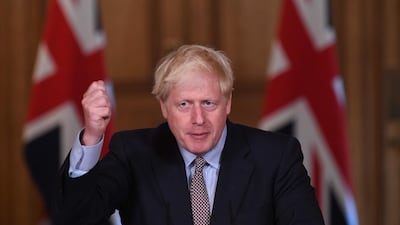Boris Johnson has on Friday called his intention to break international law “absolutely vital” to prevent the “break up of our country” and the EU is beginning to see “how serious we are”.
ITV's political correspondent Paul Brand tweeted part of the transcript from the UK prime minister's address to MPs on Friday night.
Mr Johnson's battening down of the hatches is likely to add further malcontent to the ongoing trade negotiations.
The European Parliament’s lead Brexit lawmaker said earlier on Friday that even if a free trade agreement is struck, the EU will refuse to ratify it unless Britain drops plans to renege on parts of the withdrawal agreement.
“Should the UK breach the withdrawal agreement, the European Parliament won’t ratify a future agreement between the European Union and the United Kingdom,” said David McAllister, a German politician who heads the European Parliament’s UK-EU coordination group.
Mr McAllister said the British bill was “a serious and unacceptable breach of international law.”
His defiance follows the EU's threat on Thursday to sue the UK should it follow through on its avowed course.
Boris Johnson’s plan to alter provisions in the EU divorce deal has put already bogged-down talks on a future trade deal into an even deeper rut.
His volte-face has also enraged his predecessor, Theresa May, who questioned "how can the government reassure future international partners that the UK can be trusted to abide by the legal obligations of the agreements it signs?"
In the face of Mr Johnson's provocation, Mr McAllister told The Associated Press that the EU is remaining "firm" and "calm" after a meeting of the European Parliament's UK committee.
“But it’s not easy to negotiate our future relations under these threatening circumstances,” he said.
Leaders of the bloc vowed to stand together as time runs short to find a smooth economic transition before Britain leaves the EU’s economic structures on December 31.
Here are key remaining 2020 dates which will resolve the UK's three-year long EU secession:

